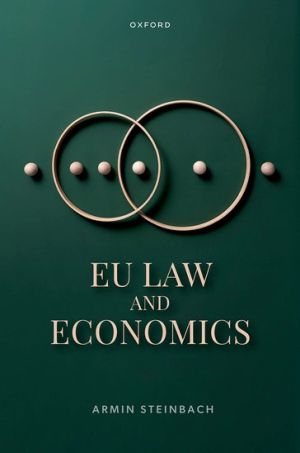
The intersection between law and economics is a dynamic field of research. Yet, European law has so far not been the subject of comprehensive, systematic economic analysis. Instead issues such as the European debt crisis, COVID-19 pandemic, and the climate emergency have largely escaped scholarly analysis through the nexus of EU law and economics.
EU Law and Economics closes this gap, providing an overview of the application of economics to the institutional, procedural, and substantive aspects of European law. Drawing on various branches of the economic sciences - including rational choice and game theory, and institutional and behavioural economics - this book goes beyond conventional methods of EU legal scholarship to expand our understanding of EU law and its effects. This book devotes attention to EU Treaties and secondary law, as well as their adjudicative interpretation, while using economic theory to explain their core legal principles such as conferral, subsidiarity, and mutual recognition.
Systematic and original, this book offers additional descriptive and normative metrics that expand our understanding of the decision-making behaviour of EU institutions and member states, while opening a new dialogue between two distinct disciplines.